The 6th annual film festival at Pace University was one to remember. This event has been an annual celebration of our similarities and differences, organized by Seidenberg faculty member Dr James P. Lawler. Over the course of the evening, a series of short films made by and starring individuals with disabilities was screened, with a panel discussion in between each screening. The festival also included several guest speakers, one of whom was the Assemblyman Harvey Weisenberg, who gave a passionate speech about the difficulties faced by individuals with disabilities and their families. Assemblyman Weisenberg is a staunch advocate for people with disabilities, and fought to legalize Jonathan’s Law, which protects developmentally disabled children from abuse, amongst other incredible things. “Be a voice for people who don’t have one,” he told a packed room at the festival. “You have to be the voice of the people who cannot advocate for themselves.”
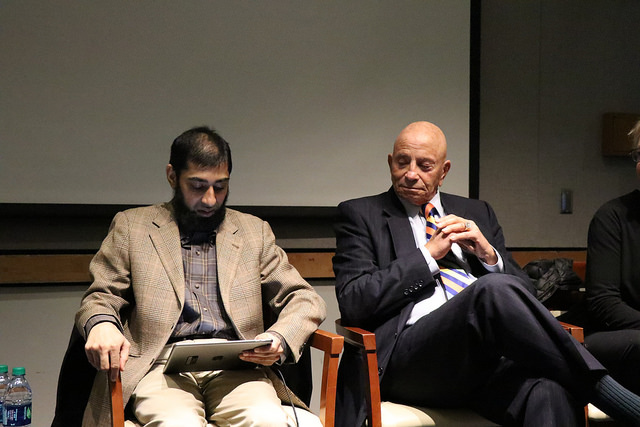
Seidenberg School alumna Tabitha Haly, a self-advocate and talented musician, gave a stunning musical performance and kindly provided merchandise for the winners of a raffle that took place during the evening. She also participated on the panels, and between all the guests some tough truths were shared – such as how there has been a 14% decrease in staff of people that have left their jobs because they cannot pay their bills. How the people taking care of children with physical and developmental disabilities are getting paid the absolute bare minimum – people who dedicate their lives to take care of our families and cannot pay their bills. There were 83,000 cases of neglect and abuse in the most recent years, with people with disabilities, less than 5% were investigated. This festival was put together to educate others and force change.
At this event, many films were shown to highlight the different challenges many people face in this world. These films were very touching and heartfelt as the filmmakers showed the disabilities in a beautiful way. These films show a person that having a disability should not stop you from what you want to do and everyone has something unique about them to contribute to society.
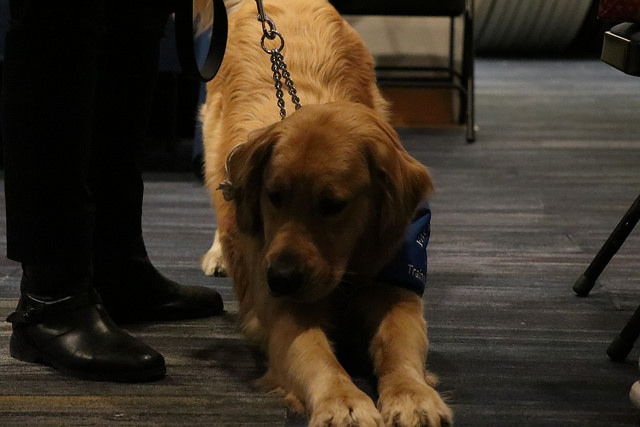
There were so many great films but one of my favorites was Humans of San Jose by Wataro Kubo. Made about Wataro’s brother with autism, Humans of San Jose was about embracing what makes you different. “I think I want to stay different” was an amazing quote from the movie that really strikes you. This filmmaker offers us to think about autism from a different lens. Maybe autism is just a different aspect of normal. Different makes us all better. This film successfully shows there is no such thing as normal.
As in previous years, the film festival was a massive success. The Bianco Room was packed and many people had to stand (but at least there was free popcorn!).
We would like to thank all of our incredible guests and panelists, our movie makers and stars, and Dr. Lawler for his tireless work as an advocate and organizer of these special events.


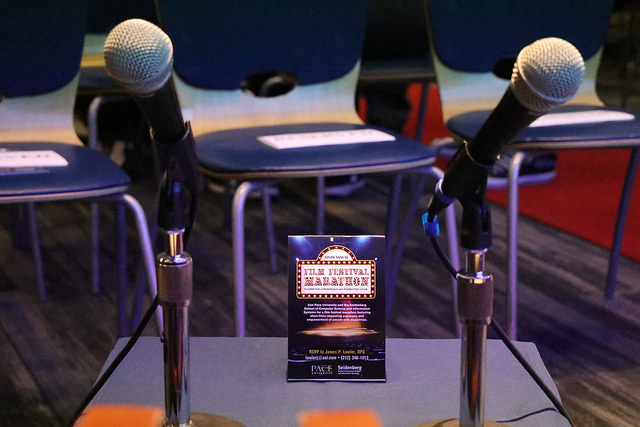
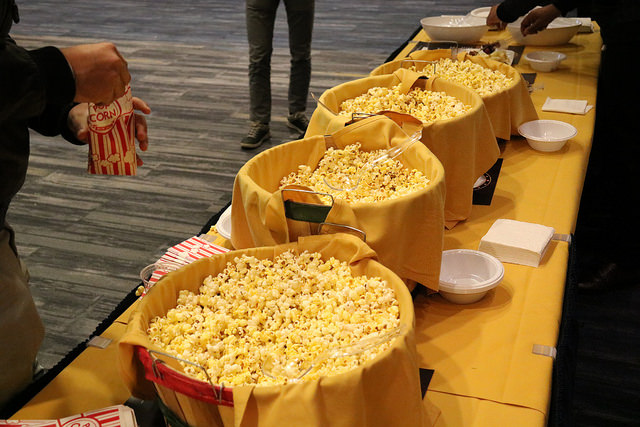
 Discussions with the panel were interspersed between screenings. Audience members were welcome to share their own experiences with disability, and many did. Films representing members of society that do not fit a particular mode are rare, and many people appreciated seeing themselves or their friends represented on the big screen.
Discussions with the panel were interspersed between screenings. Audience members were welcome to share their own experiences with disability, and many did. Films representing members of society that do not fit a particular mode are rare, and many people appreciated seeing themselves or their friends represented on the big screen. One of the great things about this particular event is the sense of community and support that fills the room as conversations are had and experiences are shared. The event is held in partnership with
One of the great things about this particular event is the sense of community and support that fills the room as conversations are had and experiences are shared. The event is held in partnership with 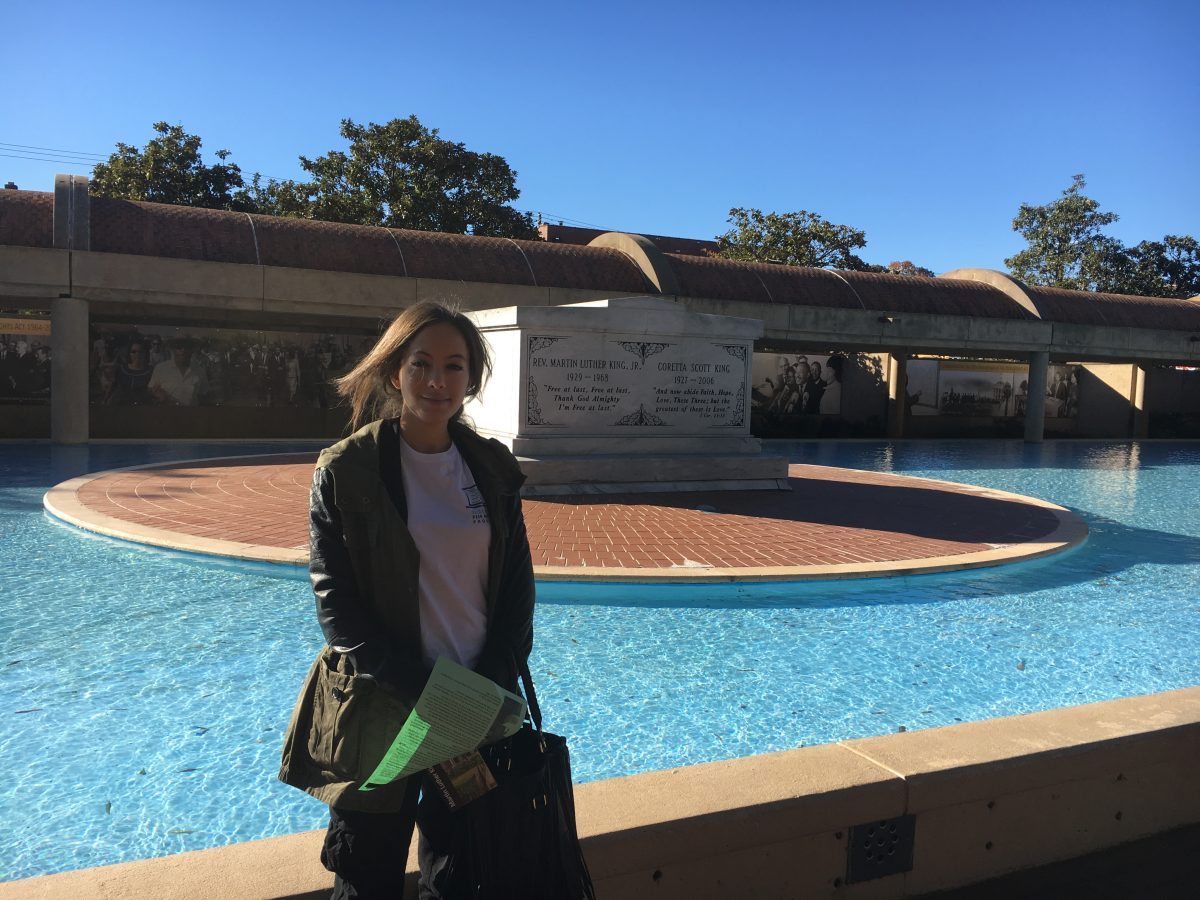
 It was an honor to attend the Faculty Resource Network’s National Symposium in Atlanta in November. I co-presented with Dr. James Lawler on inclusion programs for students with disabilities in the Seidenberg School. I spoke about the class I took with Dr. Lawler (
It was an honor to attend the Faculty Resource Network’s National Symposium in Atlanta in November. I co-presented with Dr. James Lawler on inclusion programs for students with disabilities in the Seidenberg School. I spoke about the class I took with Dr. Lawler (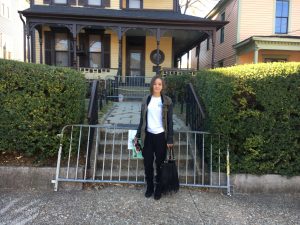
 During the conference, we went to three different schools: Morehouse College (an all-male college where Dr. Martin Luther King went), Spelman College (all-female college), and Clark Atlanta University (co-ed). All of the schools were beautiful, it was a privilege to visit them. I got choked up when we went to Morehouse College because Dr. King went there. I felt like I was walking through history. At the school they had a picture of President Obama delivering the Commencement speech in 2013 and I was in awe: both President Obama and Dr. Martin Luther King’s presences were there.
During the conference, we went to three different schools: Morehouse College (an all-male college where Dr. Martin Luther King went), Spelman College (all-female college), and Clark Atlanta University (co-ed). All of the schools were beautiful, it was a privilege to visit them. I got choked up when we went to Morehouse College because Dr. King went there. I felt like I was walking through history. At the school they had a picture of President Obama delivering the Commencement speech in 2013 and I was in awe: both President Obama and Dr. Martin Luther King’s presences were there.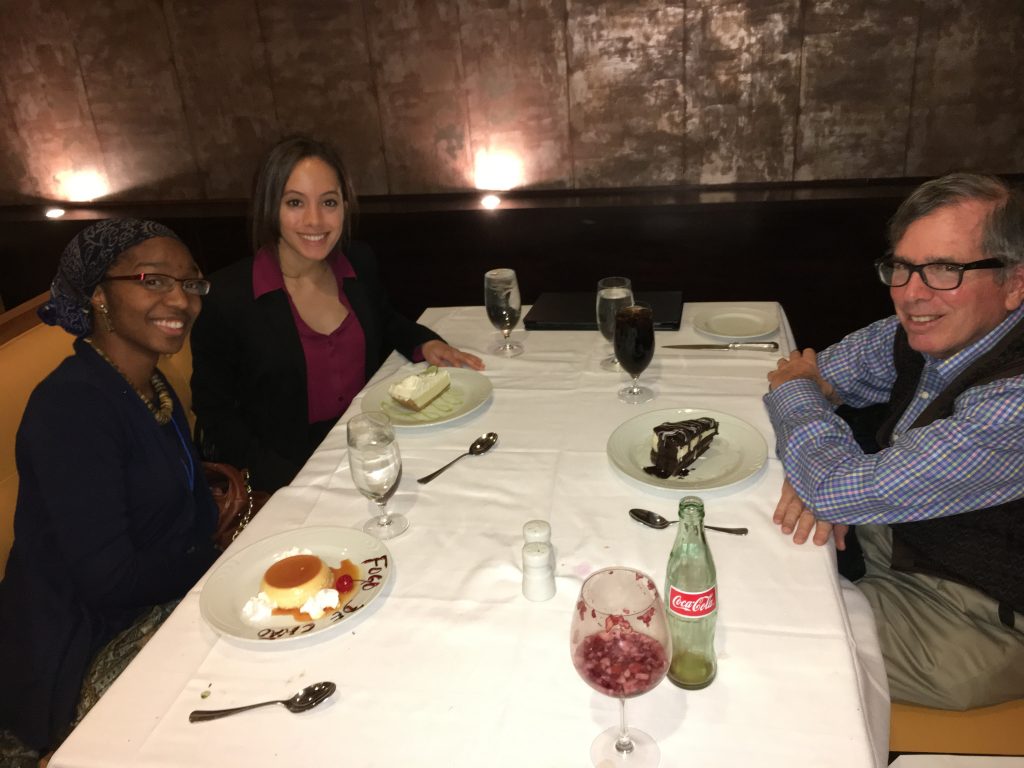
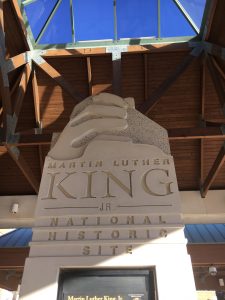 we broke down one professor started to play Bob Marley “Don’t Worry” and we all chimed in – it was priceless. The bus kept trying to get us all back to the hotel, but unfortunately it failed. We had to walk back to the hotel. On our final day we visited the Martin Luther King Jr. National Historic Site. I was overwhelmed with emotion, I had the chills the whole time – history was brought to life. To walk where Dr. King walked, to stand in the area where he preached in Ebenezer Baptist Church, to see the pole in the firehouse where he played on as a child, and lastly to see his grave was indescribable.
we broke down one professor started to play Bob Marley “Don’t Worry” and we all chimed in – it was priceless. The bus kept trying to get us all back to the hotel, but unfortunately it failed. We had to walk back to the hotel. On our final day we visited the Martin Luther King Jr. National Historic Site. I was overwhelmed with emotion, I had the chills the whole time – history was brought to life. To walk where Dr. King walked, to stand in the area where he preached in Ebenezer Baptist Church, to see the pole in the firehouse where he played on as a child, and lastly to see his grave was indescribable.